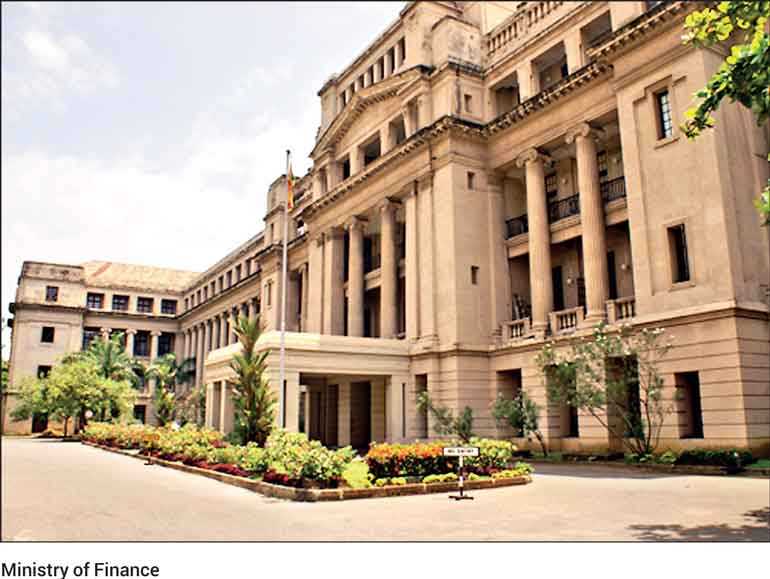Friday Feb 27, 2026
Friday Feb 27, 2026
Saturday, 8 December 2018 00:10 - - {{hitsCtrl.values.hits}}

 Even as the people of Sri Lanka are waiting with bated breath for the Supreme Court’s ruling on the dissolution of Parliament and the functioning of Mahinda Rajapaksa as Prime Minister, European nations, which have close economic relations with the island, are reportedly very concerned about the status of the country’s economy, and what might happen to it if the political and constitutional impasse spills over into 2019.
Even as the people of Sri Lanka are waiting with bated breath for the Supreme Court’s ruling on the dissolution of Parliament and the functioning of Mahinda Rajapaksa as Prime Minister, European nations, which have close economic relations with the island, are reportedly very concerned about the status of the country’s economy, and what might happen to it if the political and constitutional impasse spills over into 2019.
In Europe’s estimation, the Sri Lankan economy is in bad shape, though it is admitted that the on-going political crisis is not entirely responsible for the situation, and that the crisis might only have exacerbated it.
However, the crisis is, by itself, deep and unprecedented making its future course quite unpredictable. Its unpredictability is an added cause of worry.
As on date, there is no Prime Minister and a council of ministers after the Court of Appeal issued an interim stay on the functioning of Mahinda Rajapaksa and his 49-member team of ministers. The case is now on appeal in the Supreme Court.
The Executive President, Maithripala Sirisena, armed with extraordinary constitutional powers, is refusing to re-appoint sacked Prime Minister Ranil Wickremesinghe even though the latter has demonstrated that he has majority support in Parliament with 122 of the 225 members voting with him on four different occasions in Parliament after he was unceremoniously sacked and replaced by Mahinda Rajapaksa on 26 October.
A case against the dissolution of Parliament by the President is pending in the Supreme Court and a ruling is expected only next week.
If the court rules that the dissolution was constitutional, fresh elections, which will follow early next year, is likely to settle the issue.
However, if the United National Front (UNF) comes back with a majority under the leadership of Wickremesinghe, the President will continue to make a fuss over appointing him as Prime Minister (unless he had mellowed in the meanwhile). But given the deep seated animosity against Wickremesinghe lurking in the mind of the President, the fight may continue to the detriment of the country.
If the Supreme Court ruling is against dissolution, the current Parliament will continue till mid-2020. In that event, the ball will be back in the court of President Sirisena and Prime Minister Wickremesinghe. Given the mandates the two enjoy (one is a directly elected President and the other has majority support in Parliament) a continuation of the row is guaranteed. And given the deep seated differences between the two, it seems unlikely that they will work in harmony anytime soon.
While the President has been saying that he will not re-appoint Wickremesinghe “even if all the 225 members of Parliament want it,” Wickremesinghe’s UNF is equally adamant that its candidate for Premiership will be Wickremesinghe and Wickremesinghe alone.
The gigantic clash between two powerful constitutional entities, i.e.: between a directly elected Executive President on the one hand, and a Parliament holding the nation’s purse strings on the other, will continue to torment the country struggling to get up and walk after a 30-year debilitating internal war.
Though politics is the art of the possible, and there are no permanent friends or enemies in politics, a compromise or a stepping back by one or both, appears unlikely now or in the foreseeable future.
Economy
In the meanwhile, the economy seems to be weakening. GDP Growth projection has come down from 5% to 3.5%. The Lankan rupee (LKR) has been losing value vis-à-vis the US dollar steadily to be Rs. 181 now.
However, the fall of the LKR has been on even before the political crisis sparked off on 26 October. According to the Central Bank, the LKR weakened by 4% in September and 3% in October. Overall, through 2018, it had come down by 15.4% vis-à-vis the US Dollar. The LKR’s value vis-à-vis the Euro, has also fallen – from Rs. 181 in August to Rs. 200 now.
The fall of the LKR has curtailed household consumption. Companies have put on hold expansion plans and new projects. The banking sector may see a rise in non-performing loans. The retail sector is also set for a downturn. The Christmas season, which is a time for people to go on a buying spree, is not likely to see much cheer as people are not exactly making a beeline to the shopping malls.
Sri Lanka being import dependent, the fall in the value of the rupee could lead to slow down of imports. It could lead to inflation followed by a tight monetary policy and higher interest rates. This in turn will slow down investment and growth.
Moody’s downgraded Sri Lanka from B1 to B2 due to low reserves and the tightening of domestic and international financing conditions.
The Government had taken a $ 1 billion loan from the China Development Bank to ease the pressure on the currency. In September, the Sri Lankan Central Bank said that it proposes to raise $ 250 million by issuing Renminbi-denominated ‘Panda’ bonds and $ 250 million by issuing Yen denominated ‘Samurai’ bonds in an effort to expand the country’s investor base. These bonds will allow Sri Lanka to tap into the Chinese and Japanese capital markets.
In addition, Sri Lanka is talking to Qatar and Oman about a currency swap amounting to $ 2 to 3 billion.
Government hoped to raise tax revenue by 22% in 2018, but the rise was only to the tune of 3% despite a new revenue collection law.
Due to the price reductions and tax cuts announced by the short lived post-26 October Mahinda Rajapaksa Government, the IMF has decided to put on hold aid under its Extended Fund Facility (EFF) program. The new giveaways contradicted IMF’s conditions. Therefore, the pending IMF tranche of $ 500 million has not been disbursed.
Some of the key concessions announced by the then Prime Minister cum Finance Minister Mahinda Rajapaksa are: Reduction of tax rate for agricultural businesses from 24% to 14%; reduction of tax on Small and Medium Enterprises from 24% to 14%; the increase of the threshold for VAT for small businesses from Rs. 12 million to Rs. 24 million; and for wholesale and retail businesses from Rs. 50 million to Rs. 100 million.
Rajapaksa had lifted the Withholding tax on interest on deposits and the tax on remittances. He had also cut the Telecom tax from 25% to 15%. Petrol prices were brought down by Rs. 10 per litre and diesel by Rs. 7 per litre.
Public debt
Sri Lanka is debt ridden with the public debt to GDP ratio being 77.6% which is well above the permissible level. According to Moody’s, interest payment will absorb about 40% of the country’s revenue by 2020.
Debt servicing is a huge problem for Sri Lanka, even though it has never defaulted. According to the figures put out on 2 October, the total debt servicing requirement in 2019 would be Rs. 2057 billion of which the money to be paid to foreign funders will be Rs. 786 billion ($ 4.65 billion).
The Wickremesinghe Government hoped to borrow Rs. 1.9 billion from local and foreign sources to pay loan instalments and finance the budget deficit in 2019.
The government may have to curtail public expenditure in 2019 which could cause hardship to the common man.
There has been a flight of foreign investors from the Colombo Stock Market. Foreign investors were net sellers of shares worth Rs. 20 billion in 2018. Foreigners also left the bond market to the tune of Rs. 23 billion.
Growth in credit
Thanks to Central Banks’s intervention, there has been a growth in credit, with private credit going up by 15.4% in 2018 compared to 14.3% in 2017. However, with the fall in the value of the rupee, importers are disadvantaged. The ratio of Non Performing Loans have gone from 1.9% at the end of 2017 to 2.4% at the end of June 2018.
As for international aid, while Chinese funded projects are going ahead full steam, aid from the West has been put on hold. These include the $ 500 million Millennium Challenge Cooperation fund from the US. EU and World Bank sponsored programs are also on hold. There are subtle warnings that some of these could be cancelled if the political situation deteriorates and spills over into in 2019.